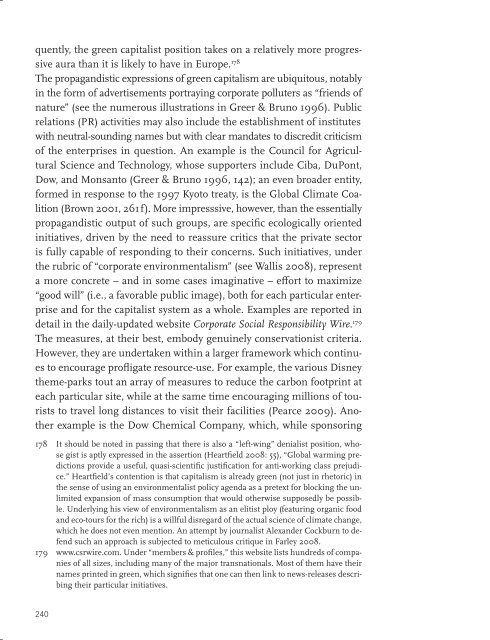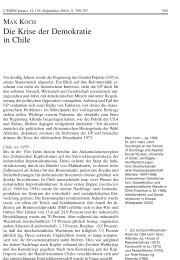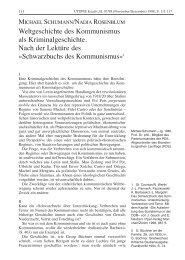Grünen Kapitalismus - Rosa-Luxemburg-Stiftung
Grünen Kapitalismus - Rosa-Luxemburg-Stiftung
Grünen Kapitalismus - Rosa-Luxemburg-Stiftung
Sie wollen auch ein ePaper? Erhöhen Sie die Reichweite Ihrer Titel.
YUMPU macht aus Druck-PDFs automatisch weboptimierte ePaper, die Google liebt.
quently, the green capitalist position takes on a relatively more progressive<br />
aura than it is likely to have in Europe. 178<br />
The propagandistic expressions of green capitalism are ubiquitous, notably<br />
in the form of advertisements portraying corporate polluters as “friends of<br />
nature” (see the numerous illustrations in Greer & Bruno 1996). Public<br />
relations (PR) activities may also include the establishment of institutes<br />
with neutral-sounding names but with clear mandates to discredit criticism<br />
of the enterprises in question. An example is the Council for Agricultural<br />
Science and Technology, whose supporters include Ciba, DuPont,<br />
Dow, and Monsanto (Greer & Bruno 1996, 142); an even broader entity,<br />
formed in response to the 1997 Kyoto treaty, is the Global Climate Coalition<br />
(Brown 2001, 261 f). More impresssive, however, than the essentially<br />
propagandistic output of such groups, are specific ecologically oriented<br />
initiatives, driven by the need to reassure critics that the private sector<br />
is fully capable of responding to their concerns. Such initiatives, under<br />
the rubric of “corporate environmentalism” (see Wallis 2008), represent<br />
a more concrete – and in some cases imaginative – effort to maximize<br />
“good will” (i.e., a favorable public image), both for each particular enterprise<br />
and for the capitalist system as a whole. Examples are reported in<br />
detail in the daily-updated website Corporate Social Responsibility Wire. 179<br />
The measures, at their best, embody genuinely conservationist criteria.<br />
However, they are undertaken within a larger framework which continues<br />
to encourage profligate resource-use. For example, the various Disney<br />
theme-parks tout an array of measures to reduce the carbon footprint at<br />
each particular site, while at the same time encouraging millions of tourists<br />
to travel long distances to visit their facilities (Pearce 2009). Another<br />
example is the Dow Chemical Company, which, while sponsoring<br />
178 It should be noted in passing that there is also a “left-wing” denialist position, whose<br />
gist is aptly expressed in the assertion (Heartfield 2008: 55), “Global warming predictions<br />
provide a useful, quasi-scientific justification for anti-working class prejudice.”<br />
Heartfield’s contention is that capitalism is already green (not just in rhetoric) in<br />
the sense of using an environmentalist policy agenda as a pretext for blocking the unlimited<br />
expansion of mass consumption that would otherwise supposedly be possible.<br />
Underlying his view of environmentalism as an elitist ploy (featuring organic food<br />
and eco-tours for the rich) is a willful disregard of the actual science of climate change,<br />
which he does not even mention. An attempt by journalist Alexander Cockburn to defend<br />
such an approach is subjected to meticulous critique in Farley 2008.<br />
179 www.csrwire.com. Under “members & profiles,” this website lists hundreds of companies<br />
of all sizes, including many of the major transnationals. Most of them have their<br />
names printed in green, which signifies that one can then link to news-releases describing<br />
their particular initiatives.<br />
240













